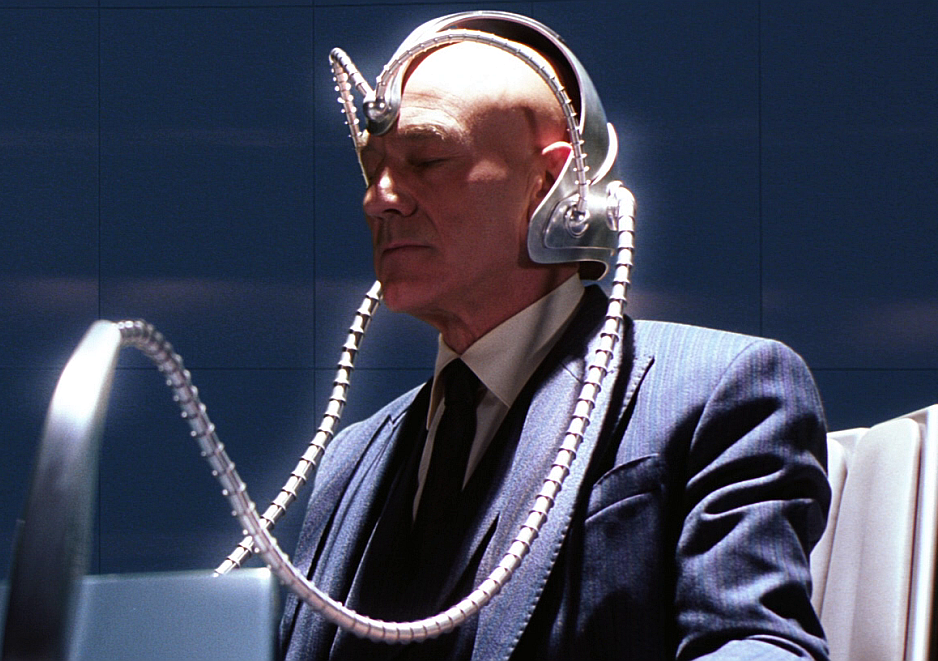
Posted on 06/01/2025 11:57:58 AM PDT by EBH
Micro-brain sensors placed between hair strands overcome traditional brain sensor limitations.
Georgia Tech researchers have developed an almost imperceptible microstructure brain sensor to be inserted into the minuscule spaces between hair follicles and slightly under the skin. The sensor offers high-fidelity signals and makes the continuous use of brain-computer interfaces (BCI) in everyday life possible.
BCIs create a direct communication pathway between the brain's electrical activity and external devices such as electroencephalography devices, computers, robotic limbs, and other brain monitoring devices. Brain signals are commonly captured non-invasively with electrodes mounted on the surface of the human scalp using conductive electrode gel for optimum impedance and data quality. More invasive signal capture methods such as brain implants are possible, but this research seeks to create sensors that are both easily placed and reliably manufactured.
Hong Yeo, the Harris Saunders Jr. Professor in the George W. Woodruff School of Mechanical Engineering, combined the latest microneedle technology with his deep expertise in wearable sensor technology that may allow stable brain signal detection over long periods and easy insertion of a new painless, wearable microneedle BCI wireless sensor that fits between hair follicles. The skin placement and extremely small size of this new wireless brain interface could offer a variety of benefits over traditional gel or dry electrodes.
“I started this research because my main goal is to develop new sensor technology to support healthcare and I had previous experience with brain-computer interfaces and flexible scalp electronics,” said Yeo, who is also a faculty member in Georgia Tech’s Institute for People and Technology. “I knew we needed better BCI sensor technology and discovered that if we can slightly penetrate the skin and avoid hair by miniaturizing the sensor, we can dramatically increase the signal quality by getting closer to the source of the signals and reduce unwanted noise.”
Today’s BCI systems consist of bulky electronics and rigid sensors that prevent the interfaces from being useful while the user is in motion during regular activities. Yeo and colleagues constructed a micro-scale sensor for neural signal capture that can be easily worn during daily activities, unlocking new potential for BCI devices. His technology uses conductive polymer microneedles to capture electrical signals and conveys those signals along flexible polyimide/copper wires — all of which are packaged in a space of less than 1 millimeter.
A study of six people using the device to control an augmented reality (AR) video call found that high-fidelity neural signal capture persisted for up to 12 hours with very low electrical resistance at the contact between skin and sensor. Participants could stand, walk, and run for most of the daytime hours while the brain-computer interface successfully recorded and classified neural signals indicating which visual stimulus the user focused on with 96.4% accuracy. During the testing, participants could look up phone contacts and initiate and accept AR video calls hands-free as this new micro-sized brain sensor was picking up visual stimuli — all the while giving the user complete freedom of movement.
According to Yeo, the results suggest that this wearable BCI system may allow for practical and continuous interface activity, potentially leading to everyday use of machine-human integrative technology.
“I firmly believe in the power of collaboration, as many of today’s challenges are too complex for any one individual to solve,” said Yeo. “Therefore, I would like to express my gratitude to all the researchers in my group and the amazing collaborators who made this work possible. I will continue collaborating with the team to enhance BCI technology for rehabilitation and prosthetics.”

Interesting local tech news.
Moving to the Matrix gradually, and loving it the whole time.

Cool beans.

"Mein Leader..."

"I can TALK!" (cue nuclear explosion)
Seriously though, modern advances are pointing toward solving many physical problems thought insurmountable until now. Good things!
No. Just no.
Disclaimer: Opinions posted on Free Republic are those of the individual posters and do not necessarily represent the opinion of Free Republic or its management. All materials posted herein are protected by copyright law and the exemption for fair use of copyrighted works.